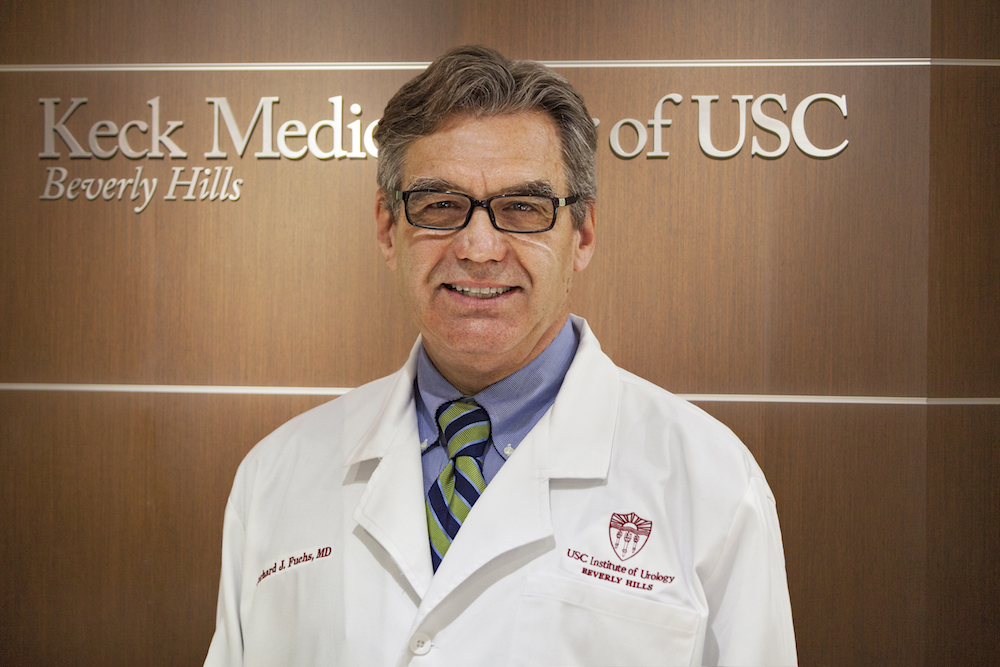
Dr. Fuchs is a urologist at Keck Medicine of USC, who specializes in the minimally invasive treatment of kidney stones, advanced endoscopic surgery and urologic laparoscopic surgery.
Here’s what you won’t find on his resume.
He moved to Los Angeles from Germany.
“I am from the southwest region of Germany near Heidelberg. In 1985, I was practicing in Stuttgart, Germany, and we had the second machine in the world to perform extracorporeal shock wave lithotripsy (ESWL). ESWL is a minimally invasive treatment method in which you can destroy kidney stones in the body without surgery. This treatment revolutionized kidney stone treatment worldwide. Professor Christian Chaussy, inventor of the technology, was invited to UCLA as a visiting professor that year and asked me to join him. When Prof. Chaussy returned to Germany, I was asked to stay and head the program at UCLA.”
He had always intended on teaching in an academic medical center.
“I had the good luck of being at ground zero for a number of new treatment modalities for minimally invasive treatment of kidney disease, including the ESWL, ureteroscopic surgery, retrograde intrarenal surgery, percutaneous surgery and laparoscopic surgery. As a result, I acquired these techniques before others. The next step is to disseminate the information and teach others, so that more patients can benefit from new treatments. It was a natural match.”
He had planned to specialize in ophthalmology.
“I received a PhD in ophthalmology, and then I realized, I was more interested in urology. I had a family friend who owned a private urology hospital, where I would go as a student and where I gained significant exposure to the specialty. Urology combines open surgery and endoscopic surgery. Most patients that we treat, we can usually fix. We can see the result, and it is very rewarding when you see that with each and every patient, you can make a difference.”
If he were not a physician, he would be back at university studying.
“As a student, during semester breaks, I would spend time in monasteries, and they would teach courses on how to speak Latin. A lot of my interests are still centered on history, Latin and philosophy. If I were not in the medical field, I could see myself going back to university for formal studies of Latin, Roman history and philosophy.”
His favorite place in the world is Rome.
“The first time I went to Rome, I was 16. I felt like I had been there before. Each and every time I visit, I feel as I had when I was 16.”
His patients are involved in treatment decisions.
“I want my patients to understand what we’re doing. I want to really partner with the patient, and I want to make sure that the patient understands that they can always access me.”
View Dr. Fuchs’ full biography and schedule an appointment.
Topics
